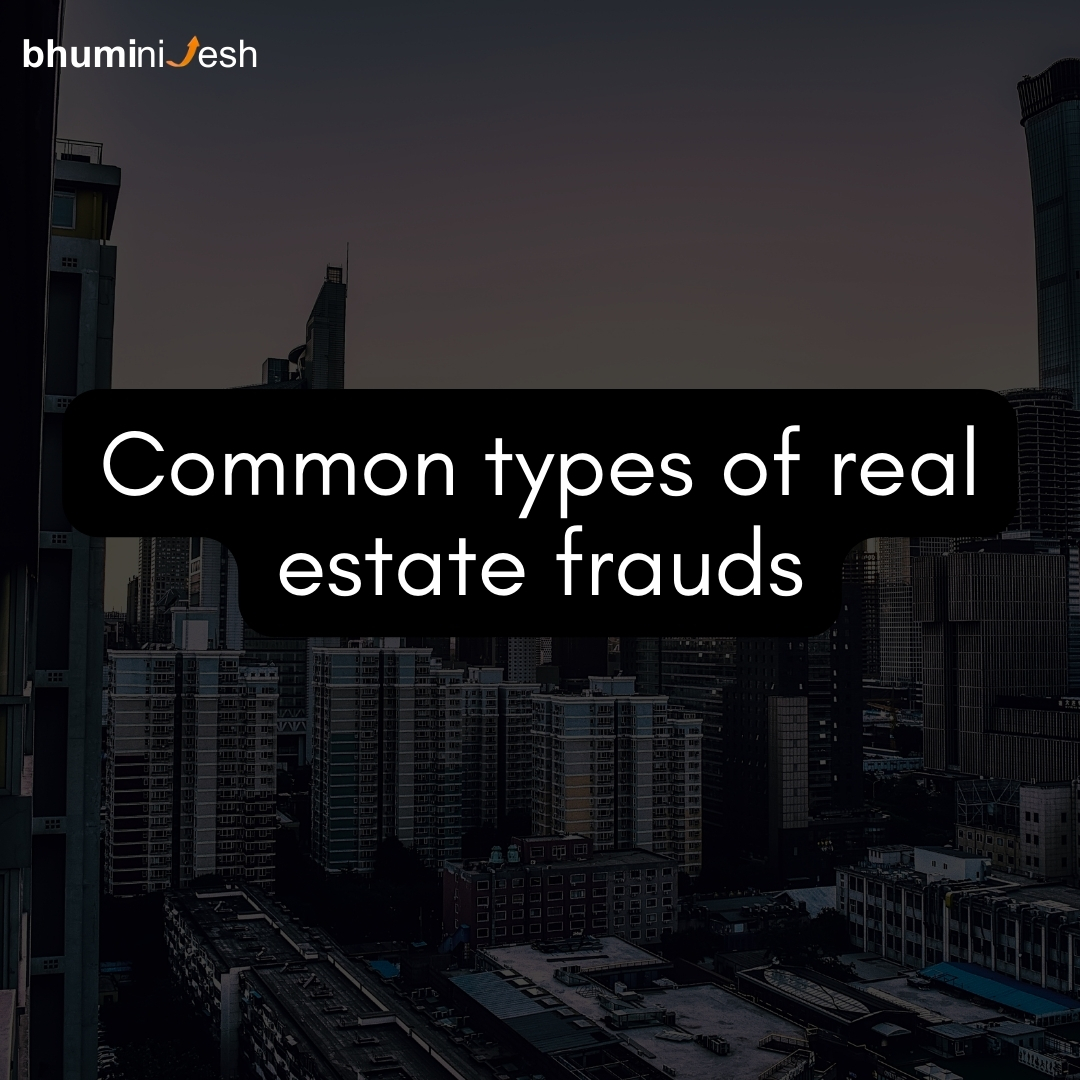
Real estate is a rich and active market, but it unfortunately has its fair share of scams and frauds, which puts buyers, sellers, investors, and renters at high risk. Real estate fraud is a broad umbrella that includes a variety of illegal behaviors that can lead to substantial losses in money and emotional suffering, from complex schemes to straightforward frauds. These fraudulent activities often prey on people’s trust, ignorance, or need for housing by taking advantage of flaws in the purchasing, selling, and renting procedures.
Scammers use false listings for houses they do not own or have permission from the owner to rent to attract naïve tenants, collecting security deposits and rental money in the process.
It is essential to understand these frauds in order to protect oneself from monetary loss and legal complications. The following are a few of the most common kinds of real estate frauds:

Scams involving Insolvency Rescue: Homeowners facing insolvency are sometimes easy prey for scammers during difficult financial times. These scam artists frequently guarantee to assist homeowners in avoiding foreclosure through loan negotiations or by providing refinancing options. To begin their “services,” though, they usually demand payment up front or the title to the property being transferred. Sadly, a lot of homeowners fall prey to these fraudsters, losing their houses as well as their money when scammers fall short of their promises.
Mortgage Fraud: In order to obtain loans under false pretenses, mortgage fraud involves the falsification or omission of information on mortgage applications. This can involve faking property evaluations, presenting fake job information, or exaggerating assets or income. In addition to misleading lenders, mortgage fraud puts borrowers at risk of default and foreclosure if they are unable to repay the loans they were given illegally.
Rental Scams: Tenants and landlords are the targets of rental scams. Fraudsters promote rental properties that they do not own or have the permission to rent out by posing as landlords or property managers. To draw in naïve tenants, they frequently employ authentic-looking ads on social media platforms or classified ad websites. These fraudsters take advance money for rent or security deposits, vanish, and leave renters without a place to live.
Title Fraud: When fraudsters falsify signatures on deeds or other official papers, they unlawfully transfer title of a piece of property. After seizing ownership of the property, they might sell it to naïve purchasers or use it as security for loans. Until they get notifications of foreclosure or removal, the legitimate owners are frequently ignorant of the scam, which leads to long court fights to recover their property.
Flipping Fraud: Flipping fraud is the act of artificially raising a property’s value using dishonest methods in order to sell it for a greater price. This can involve faking renovations or appraisals, as well as misrepresenting the potential or state of the property. Both purchasers and lenders are deceived by flipping fraud, as the latter may unintentionally finance overpriced houses based on false information.
Unlicensed Real Estate Activities: People who work in the real estate sector without the required licenses may commit a number of frauds. This can involve acting in the capacity of brokers or real estate agents, misrepresenting properties, giving buyers or sellers false information, or taking commissions unlawfully. Unlicensed persons frequently act outside the bounds of morality and the law, endangering their clients’ finances and exposing them to legal trouble.
Scam Schemes: Rather than making honest gains from real estate investments, Ponzi schemes in the real estate sector use money from new investors to pay returns to previous investors. These schemes’ promoters often attract investors with the promise of quick and easy money by offering large returns with little to no risk. However, investors lose their money and the scheme’s perpetrators might be charged with a crime if it fails because there are no new investors or because the returns are not sustainable.
Conclusion :
These are just a handful of the numerous varieties of real estate frauds that take place. Whether you’re investing, renting, selling, or purchasing real estate, you need to exercise extreme caution and complete due diligence to avoid becoming a victim of fraud.


